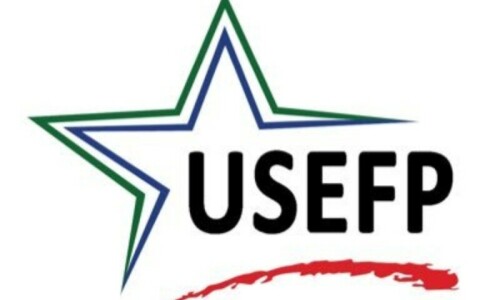THE recent in-camera civil-military huddle at Parliament House once again unfolded three conceptual cleavages that have rent apart the polity. One, the establishment continues to seek stability through a ‘hard state’, or a state that prioritises security over other constitutional and democratic imperatives. Two, a major component of the political leadership continues to differ with the mode and object of the counterterrorism strategy, besides questioning the legitimacy and continuity of the military-backed ‘hybrid’ regime. And, finally, the military leadership remains unhappy over the ‘governance gaps’, which it sees as the ‘key reasons’ behind the spike in terrorism.
Thus the old, unresolved questions about the nature and object of the state, the legitimacy of the political system — both the earlier and existing one — and poor governance continue to plague consensus-making on the fight against terrorism. These questions will remain in place unless their answers are sought from the ultimate sovereigns of the republic — the people of Pakistan. Only they have the legal power and moral authority, through their chosen representatives, to determine the nature, role and performance of the state and its institutions. But the people are nowhere in the conversation. In fact, all forms of people-state interface — the legislature, ECP, judiciary, and media — have been numbed to the point of ineffectiveness. Even the democratic façade is being dismantled brick by brick by a myopic state and political elites for ‘security and stability’. But trading democracy for stability has never paid off in the absence of a robust rule of law. Indeed, unbridled authoritarianism has caused inequities, conflicts, misgovernance, and even the collapse of state structures.
No wonder all international wars — 1948, 1965, 1971, 1999, and the decades-long ‘war on terrorism’ — were arguably triggered by military dictators or under the security establishment’s influence. Even the wounds (KP and Balochistan) inflicted on the body politic can be traced to misconceived foreign and internal policies devised by military rulers. Yet, renewed efforts are on to forge a ‘hard state’, raising two questions: before opting for an authoritarian or military option to deal with terrorism, have the proponents of the hard state objectively analysed the state’s failures to end this menace over three decades of ‘kinetic operations’?
Secondly, has democracy ever really had a chance to employ its vast conflict-resolving repertoire — a representative parliament, an independent judiciary, rule-based responsible governments, a free media, and above all, an accommodating sociopolitical environment — to engage, negotiate, recompense, pacify, and integrate discontented and estranged sections of the populace?
Just imagine. If there was a truly elected parliament giving effective representation to Balochistan, in terms of allowing every citizen — and not just powerful tribal chiefs or pro-establishment elements — to freely contest elections and win the popular mandate, would there be a cause for the Baloch insurgency or military operations, which are ripping the federal fabric? Or, had there been a fiercely independent and just judiciary coming to the rescue of citizens abducted by state agencies or harmed by militants, would there be any desperate families and affected people taking to the streets and clogging the cities and thoroughfares? Or, had rulers been genuinely wary of public and institutional accountability, would there be so much inefficiency, recklessness, and corruption in the public sector, leading to pathetic service delivery? Or, if public policies on war and peace were left to freely elected representatives reflecting the collective wisdom of the people, rather than to a closed coterie of generals and politicians, would state and society experience so much bloodletting from terrorism, counterterrorism, wars and insurgencies?
Misconceived state policies have pushed the country into an abyss.
No doubt, societal conflicts and international wars have shaped human history. From the founding of the Akkadian Empire (2350 to 2150 BCE) to the present day, the world has seen a bloody scramble for territories, markets, resources and glory. But wars have also led to the crumbling of great imperial and colonial powers — Austro-Hungarian, German, Russian, Ottoman, British, French, Japanese — leading to the creation of a large number of independent states. Many of these states were multicultural; they needed inclusive and equitable political systems to resolve disputes rooted in identity, faith, land and resources. Thus, federal and multicultural democracies successfully accommodated, and even absorbed, varied and conflicting interests. But those who resorted to authoritarianism and coercion failed miserably.
Pakistan does not match the classical Westphalian model of ‘one nation, one state’ either. It is a melange of various geographical, ethnic, religious and sectarian entities, and needs a truly federalised democracy under an able and wise leadership to establish a stable, peaceful state. It was important for the new state to instil a feeling of commonalty, participation, and ownership in diverse ethno-cultural sections. It could have taken a page from successful federal and multicultural states such as Switzerland, the UK, US, Canada, Indonesia, Malaysia, Australia, New Zealand and others. These states have, in varying degrees, successfully constitutionalised the distribution of powers, authority and resources among the constituent units, both horizontally and vertically. But in Pakistan, multicultural challenges were met with a lethal mix of authoritarianism and a religio- nationalist ideology. Thus, the historical fault lines — religious, sectarian, ethnic and sociocultural — were papered over by a superimposed state that increasingly relied on coercive policies and apparatuses. Resultantly, the country became a battleground for competing groups and interests, with some resorting to employing extremist and militarist means to achieve their goals.
Deplorably, misconceived state policies have pushed the country into an abyss. There is discontent all around. KP is crying for security; Punjab for political justice; Balochistan for rights and representation; and Sindh for resources, particularly land and water. The authoritarian model of (mis)governance has failed. To repair the frayed fabric, Pakistan desperately needs to cultivate soft power — democracy, justice, education, arts, culture, science, technology, rights, liberties, and the environment. The ‘hard state’ was neither conceived nor promised by the founding fathers. Nor has it worked over the decades. The promise was of federal democracy; it’s time to redeem it.
The writer is a lawyer.
Published in Dawn, April 4th, 2025















































